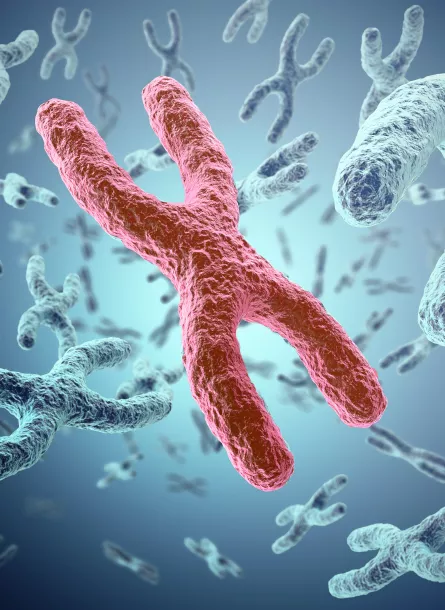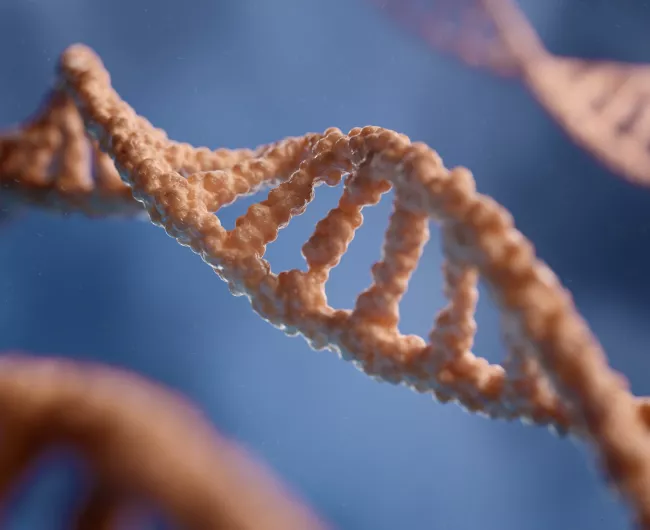
Microsatellite instability high biomarker (MSI-H) and colorectal cancer


What is an MSI-H Biomarker?
MSI-H and MSS biomarkers indicate the stability of the DNA in a tumor.
Colorectal cancer tumors are often referred to as having an “MSI status,” meaning they are described as either MSI (microsatellite instable) or MSS (microsatellite stable). They cannot be both.
In normal cells, a process called mismatch repair (MMR) fixes errors (such as mutations) that can happen when DNA divides and makes a copy of itself.
If a cell’s MMR system isn’t working right, errors will build up and cause the DNA to become unstable. This is called microsatellite instability (MSI).
There are two kinds of tests for this biomarker. Depending on the type of test that is used, an abnormal result is called microsatellite instability high (MSI-H) or mismatch repair deficient (dMMR). Both results mean the same thing.

What does an abnormal MSI-H level mean?
Approximately 15% of colorectal tumors are MSI-H and dMMR.
In most of these cases, the mutation was caused by a non-hereditary (somatic) gene abnormality in one of the MMR genes (MLH1, MSH2, MSH6, or PMS2) in a cancer cell.
In 3-5% of colorectal patients, dMMR and MSI-H are caused by Lynch syndrome. In these patients, a hereditary mutation (germline mutation) in one of the four main MMR genes is passed from one generation to another. Individuals with Lynch syndrome are at higher risk of developing colorectal, endometrial (uterine), gastric, ovarian, and other cancers.

Who should have MSI-H testing?
MSI-H testing is recommended for anyone who is diagnosed with colon or rectal cancer.
If you test positive for the MSI-H or dMMR, you should also be tested for Lynch Syndrome.

What happens if I have an MSI-H biomarker?
Knowing the details of tumor biomarkers can help you and your doctor make decisions about personalized treatment with therapies tailored specifically to the characteristics of your tumor.
- Patients diagnosed with Lynch Syndrome should talk with their family members about their diagnosis, encourage them to get tested for Lynch syndrome, and get screened often for colorectal cancer and other cancers, even if they do not have symptoms.
- MSI-H and dMMR are also predictive biomarkers that can predict a positive response to immunotherapy, but not to fluorouracil-based chemotherapy.

What are the potential side effects of treatment?
Because immunotherapy affects your immune system, you may experience inflammation in different parts of your body. In addition, some of the most common side effects of immunotherapy are dryness, itching, and rashes of the skin, nausea, fatigue due to anemia or decrease in thyroid hormones, diarrhea or constipation, headaches, and high temperature.
It is unlikely that you will have all of these side effects, but you might have some of them. Contact your doctor immediately if you are experiencing severe symptoms.
Other biomarkers
Microsatellite Stability Biomarker (MSS)Top resources

Michelle Cappel: Biomarker testing extends life
Michelle Cappel owes a lot to colorectal cancer biomarker testing — seven years of life and counting.

Not all states mandate biomarker testing coverage
While Congress has yet to bring Medicare coverage fully up to speed with advances in biomarker testing, many states are acting.

Janice Johnson: get informed and advocate for yourself
When Janice Johnson started experiencing sudden GI symptoms at the age of 48, a cancer diagnosis was the last thing she expected. In fact, it was difficult for her to even get a colonoscopy in the first place, being that the recommended screening age was 50 at the time (2016).





